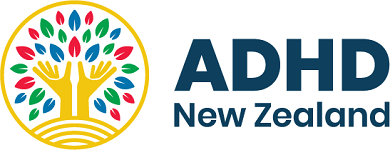Photo by Merbe
Suspect you have ADHD? Here's a self-screening tool for you.
It’s easy to put what could be ADHD down to other things and recognise it. There can be a variety of reasons for this. Often it’s because the symptoms have become so “normal” that you’ve shifted the blame onto other causes like “I’m too busy”, “I’m too tired, and my head is spinning”, or “I’m just disorganised or possibly because I’m so stressed out.”
For many of you, who have been living with ADHD, shifting the blame has meant that you've not even stopped to consider that perhaps not everyone experiences what you do or that maybe there's another way to understand what you’re experiencing. Perhaps there are even helpful strategies and treatments that might make things easier?
Some of you might even feel that it’s because you aren’t good at various things, and it feels like a personal failing.
What we know for sure is that ADHD and its symptoms are neurological. So, it's not your choice or a personal failing by you, but rather it's because brains are all created differently.
A brain with ADHD is usually capable of just as many amazing things (sometimes even more than others!). Of course, all amazing things come with their own (sometimes) significant challenges.
If you resonate with this, feel this might be you and are interested in seeing if you may have an ADHD brain, the World Health Organisation has developed a self-screening tool.
This tool is not an assessment and does not give you a diagnosis. However, it may support your decision to get a proper assessment for ADHD done.
This tool does not replace consultation with a qualified professional.
Only a qualified registered Clinical Psychologist, Psychiatrist or Paediatrician can accurately assess and diagnose ADHD.
This screener is free to use, but only if you are 18 years old or older and suspect that you may have ADHD.
This self-screening tool will ask you 18 questions and takes about five minutes to complete. Your responses will be rated, and at the end of the test, you'll get an indication of whether to get a proper assessment for ADHD.
Scoring 14 or higher on this self-screening tool is a good indication that you would benefit from seeking a professional assessment and diagnosis.
Once completed, you can download your answers and score and use this to support your assessment process.
When using this tool, please make sure that you:
If you'd like a copy of your answers and score, you'll need to:
The page will refresh and when you scroll down the page you'll see a "You're done" message and give people the option to download a pdf of your answers and score.
For many of you, who have been living with ADHD, shifting the blame has meant that you've not even stopped to consider that perhaps not everyone experiences what you do or that maybe there's another way to understand what you’re experiencing. Perhaps there are even helpful strategies and treatments that might make things easier?
Some of you might even feel that it’s because you aren’t good at various things, and it feels like a personal failing.
What we know for sure is that ADHD and its symptoms are neurological. So, it's not your choice or a personal failing by you, but rather it's because brains are all created differently.
A brain with ADHD is usually capable of just as many amazing things (sometimes even more than others!). Of course, all amazing things come with their own (sometimes) significant challenges.
If you resonate with this, feel this might be you and are interested in seeing if you may have an ADHD brain, the World Health Organisation has developed a self-screening tool.
This tool is not an assessment and does not give you a diagnosis. However, it may support your decision to get a proper assessment for ADHD done.
This tool does not replace consultation with a qualified professional.
Only a qualified registered Clinical Psychologist, Psychiatrist or Paediatrician can accurately assess and diagnose ADHD.
This screener is free to use, but only if you are 18 years old or older and suspect that you may have ADHD.
This self-screening tool will ask you 18 questions and takes about five minutes to complete. Your responses will be rated, and at the end of the test, you'll get an indication of whether to get a proper assessment for ADHD.
Scoring 14 or higher on this self-screening tool is a good indication that you would benefit from seeking a professional assessment and diagnosis.
Once completed, you can download your answers and score and use this to support your assessment process.
When using this tool, please make sure that you:
- are the only one completing the questions (i.e. no one else is also answering with you, potentially muddying the results), and
- select the answer that best describes how you have felt and conducted yourself over the past six months.
If you'd like a copy of your answers and score, you'll need to:
- complete the survey
- see your score, and
- hit the submit button.
The page will refresh and when you scroll down the page you'll see a "You're done" message and give people the option to download a pdf of your answers and score.
Research suggests that the symptoms of ADHD can persist into adulthood, having a significant impact on your relationships, careers, and even your safety.
It's easy to misunderstand ADHD. Many people who have it do not receive the appropriate treatment and, as a result, may never reach their full potential.
Part of the problem is that it can be challenging to diagnose, particularly in adults.
It's a widely considered viewpoint that adult ADHD is underdiagnosed, meaning people with the condition aren't getting the help they need. Consequently, the World Health Organisation and the Workgroup on Adult ADHD have generated this self-screening tool.
This Adult ADHD Self-Report Scale (ASRS-5) tool is an instrument that consists of the eighteen DSM-V criteria.
It's easy to misunderstand ADHD. Many people who have it do not receive the appropriate treatment and, as a result, may never reach their full potential.
Part of the problem is that it can be challenging to diagnose, particularly in adults.
It's a widely considered viewpoint that adult ADHD is underdiagnosed, meaning people with the condition aren't getting the help they need. Consequently, the World Health Organisation and the Workgroup on Adult ADHD have generated this self-screening tool.
This Adult ADHD Self-Report Scale (ASRS-5) tool is an instrument that consists of the eighteen DSM-V criteria.




